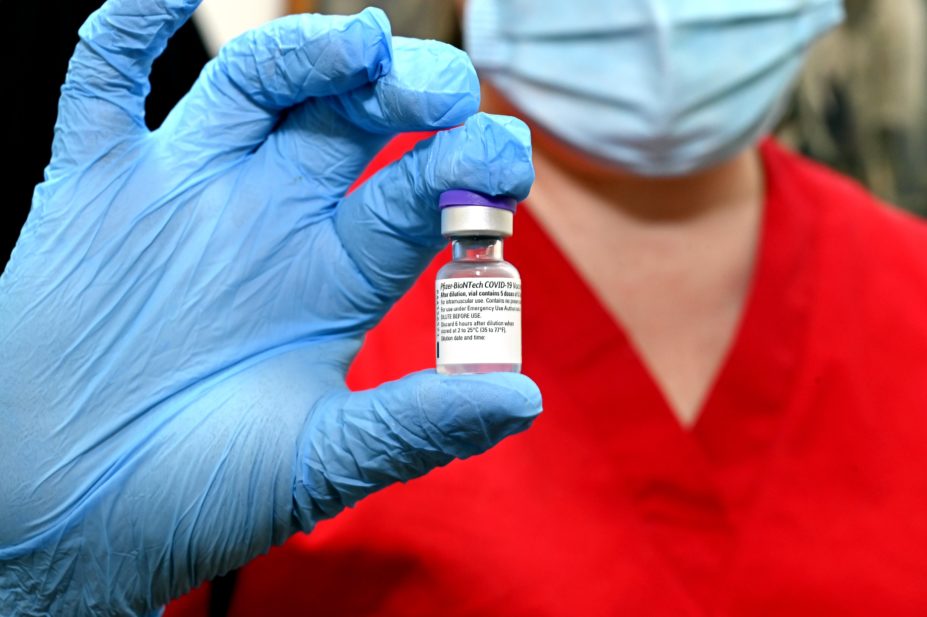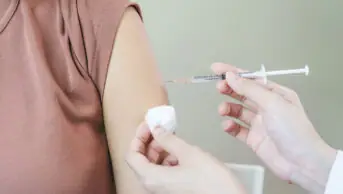
Science Photo Library
Open access article
The Royal Pharmaceutical Society has made this article free to access in order to help healthcare professionals stay informed about an issue of national importance.
To learn more about coronavirus, please visit: https://www.rpharms.com/resources/pharmacy-guides/wuhan-novel-coronavirus
Storage requirements for the Pfizer/BioNTech COVID-19 vaccine are being reviewed by the Medicines and Healthcare products Regulatory Agency (MHRA) after the manufacturer provided new stability data.
The MHRA said it will update its guidance on storage requirements “where necessary”.
This follows an announcement from the United States Food and Drug Administration (FDA) on 25 February 2021 that, after consideration of new data submitted by Pfizer, it was allowing undiluted frozen vials of the Pfizer/BioNTech COVID-19 vaccine to be transported and stored at conventional temperatures commonly found in pharmaceutical freezers for a period of up to two weeks.
This provides an alternative to the preferred storage of undiluted vials of the vaccine in an ultra-low temperature freezer at -80 °C to -60 °C.
The FDA described the alternative storage temperature as “significant”, highlighting that it would “help ease the burden of procuring ultra-low cold storage equipment for vaccination sites and should help to get vaccine to more sites”.
Siu Ping Lam, director of licensing at the MHRA, told The Pharmaceutical Journal that Pfizer had shared new stability data with the MHRA.
“We are carefully reviewing it and will update guidance where necessary,” he said.
According to a release from the FDA, the alternative temperature for storage of frozen vials is not applicable to the storage of thawed vials before dilution, which can be held in the refrigerator for up to five days, or to the storage of thawed vials after dilution, which can be held at refrigerator temperature or room temperature for use within six hours.
Meanwhile a pre-print of a real-world study, submitted by Public Health England (PHE), showed that both the Pfizer/BioNTech and Oxford/AstraZeneca vaccines were highly effective in reducing COVID-19 infections among older people aged 70 years and over.
The study examined the rate of vaccination in symptomatic people aged over 70 years who tested positive for COVID-19, compared with those who tested negative; the rate of hospitalisation in confirmed COVID-19 cases aged over 80 years who were vaccinated more than 14 days before testing positive, compared with unvaccinated cases; and the rate of deaths in confirmed COVID-19 cases aged over 80 years who were vaccinated with the Pfizer vaccine more than 14 days before testing positive, compared with unvaccinated cases.
The results show that, since January 2021, protection against symptomatic COVID-19, four weeks after the first dose, was between 57% and 61% for one dose of the Pfizer/BioNTech vaccine and between 60% and 73% for the Oxford/AstraZeneca vaccine.
In those aged over 80 years, the data suggest that a single dose of either vaccine was more than 80% effective at preventing hospitalisation, around three to four weeks after the jab. There was also evidence that suggests the Pfizer/BioNTech vaccine leads to an 83% reduction in deaths from COVID-19.
“This adds to growing evidence showing that the vaccines are working to reduce infections and save lives,” said Mary Ramsay, head of immunisation at PHE.


